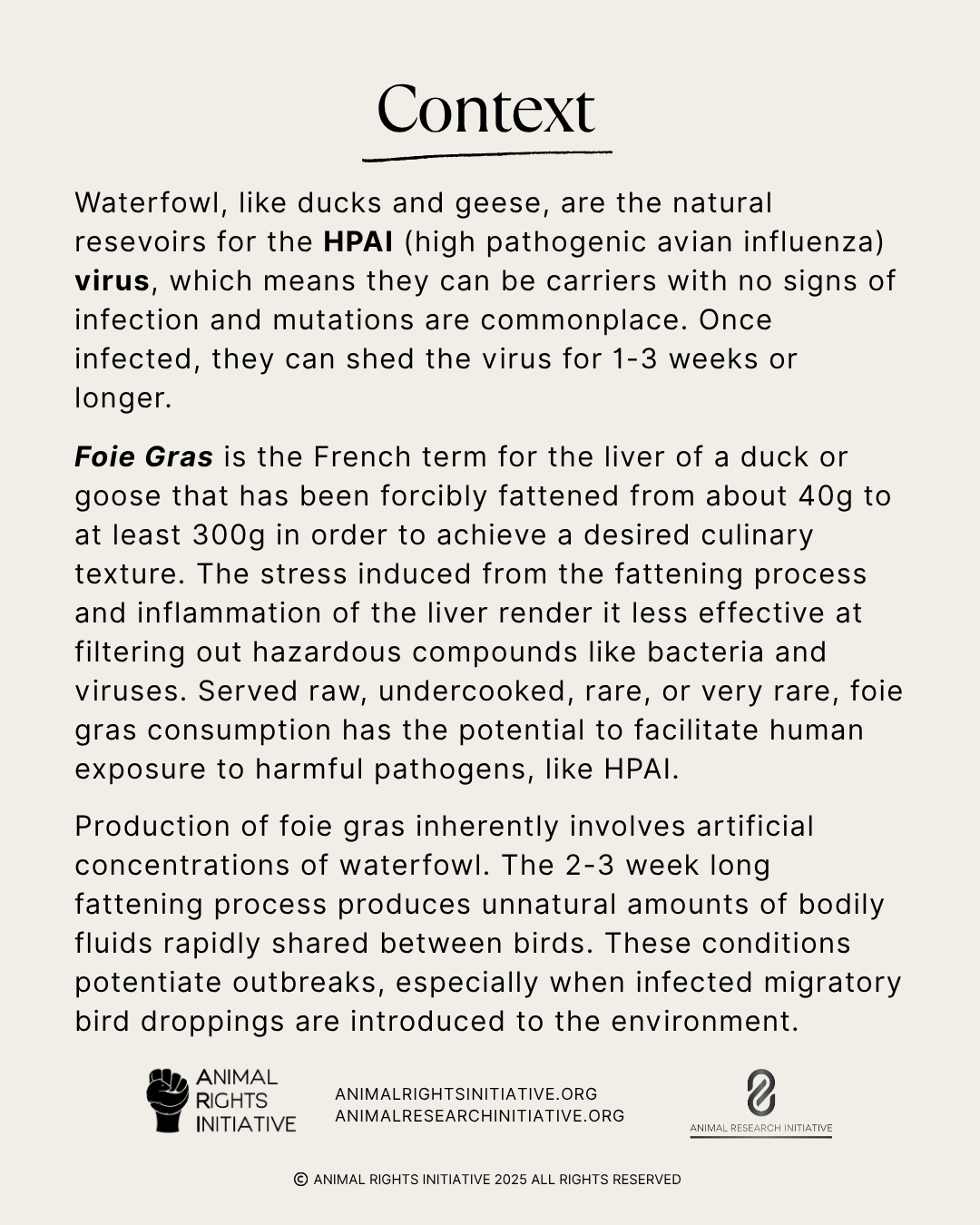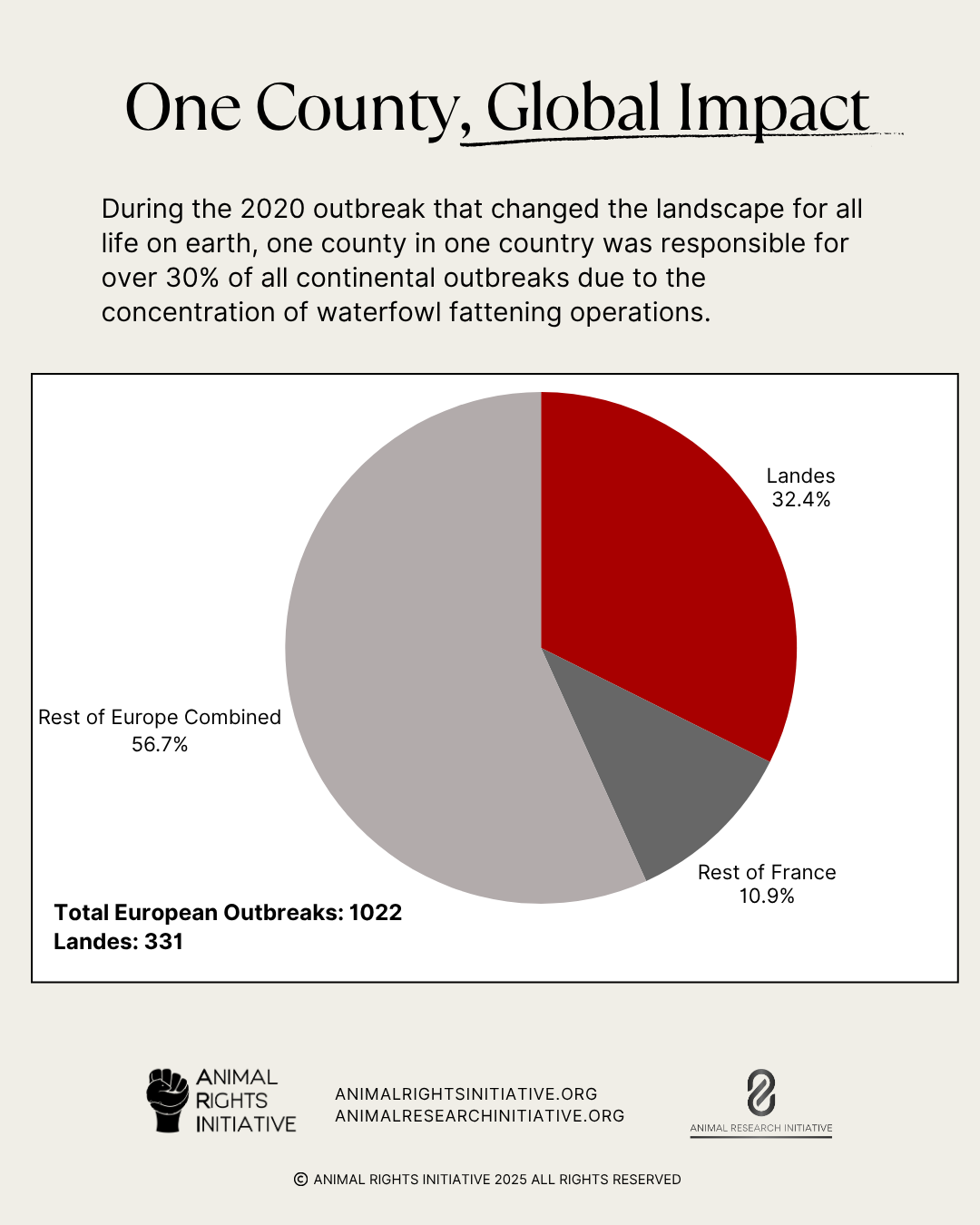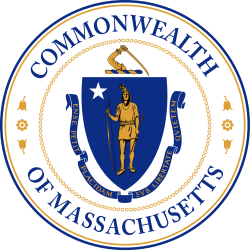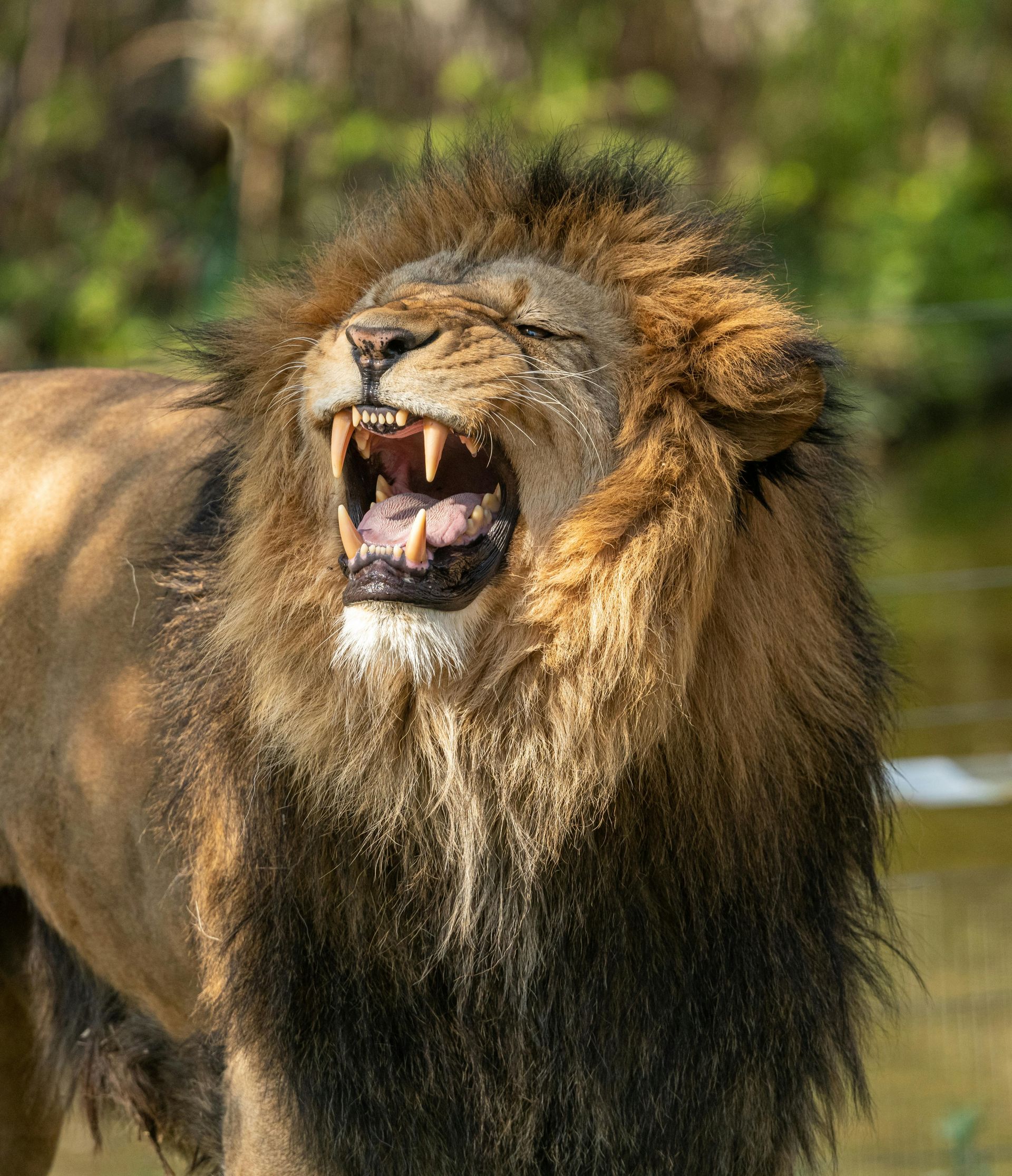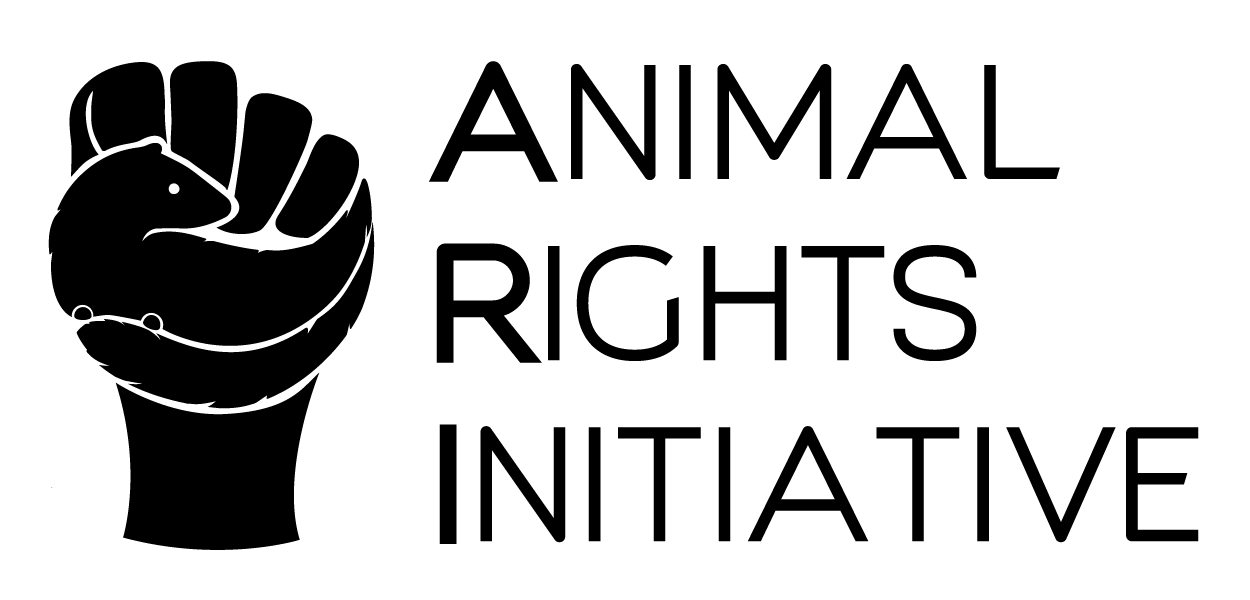About
Timeline
Actions You Can Take
Research
Fact Sheets
about this project
Waterfowl, like ducks and geese, are the natural resevoirs for the HPAI (high pathogenic avian influenza) virus, which means they can be carriers with no signs of infection and mutations are commonplace. Once infected, they can shed the virus for 1-3 weeks or longer.
Foie Gras is the French term for the liver of a duck or goose that has been forcibly fattened from about 40g to at least 300g in order to achieve a desired culinary texture. The stress induced from the fattening process and inflammation of the liver render it less effective at filtering out hazardous compounds like bacteria and viruses. Served raw, undercooked, rare, or very rare, foie gras consumption has the potential to facilitate human exposure to harmful pathogens, like HPAI.
Production of foie gras inherently involves artificial concentrations of waterfowl. The 2-3 week long fattening process produces unnatural amounts of bodily fluids rapidly shared between birds. These conditions potentiate outbreaks, especially when infected migratory bird droppings are introduced to the environment.
Timeline for our Foie Gras Campaign
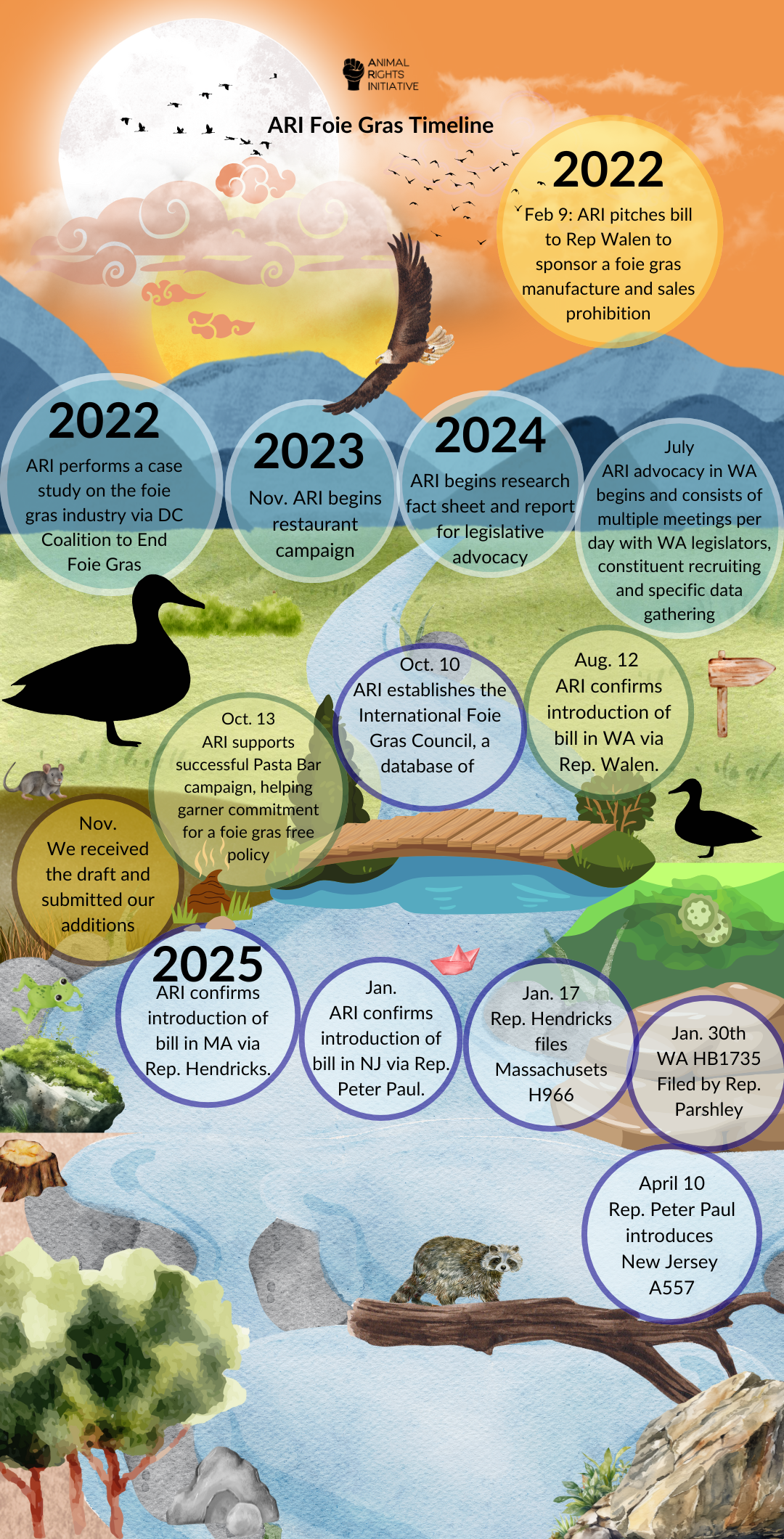
Please Help Support Our Statewide Legislation:
Endorsement
Endorse HereAdd your name to endorse the bill where allowed by law.
Washington Petition
Sign NowPlease add your name to the petitions.
Donate
DonatePlease consider a donation to help us perpetuate this critical work. All donations are tax deductible.
Volunteer
Contact UsInterested in spreading the octopus bill to other jurisdictions? You could be involved in our ongoing campaigns. We are actively pursuing legislative action in the following localities: Maine, New York, Massachussettes, Maryland, North Carolina, South Carolina, Florida, Texas, Alaska, Guam, Puerto Rico, the Virgin Islands and the United Kingdom.

